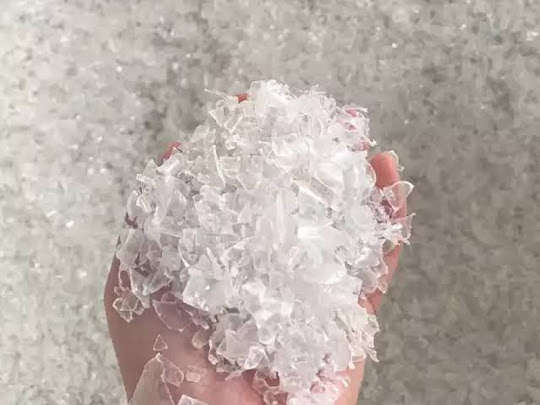Trends and Forecasts on Rising Demand of PET Bottle Flakes
The global market for PET bottle flakes is growing rapidly. It is driven by the increasing need for sustainable materials and improved recycling practices. PET flakes are produced by shredding used polyethylene terephthalate (PET) bottles into small, reusable pieces. These flakes are cleaned and processed for use in a wide range of industries, including packaging, textiles, and construction. As the world shifts toward eco-friendly solutions, the demand for recycled PET materials is expected to rise.
Key Drivers of Market Growth:
Several factors are causing the rise in the demand for PET bottle flakes across different sectors. These include environmental regulations, consumer awareness, and technological advancements.
1. Sustainability commitments
- Global brands are focused on using more recycled content in their packaging.
- Governments are enforcing stricter rules on single-use plastics and landfill waste.
- Consumers are actively choosing products with eco-friendly packaging.
These trends are pushing manufacturers to adopt recycled PET as a standard material, increasing the demand for high-quality flakes.
2. Technological advancements
- Modern sorting systems can now separate PET from other plastics with high accuracy.
- Improved washing and purification techniques enhance food-grade recycled PET production.
- Automation and AI are helping reduce contamination and improve flake quality.
These innovations make it easier and more cost-effective to produce usable PET bottle flakes, encouraging more industries to adopt recycled materials.
3. Expanding applications
- PET flakes are used in the production of new bottles, containers, and packaging films.
- The textile industry uses recycled PET to produce polyester fibres for clothing and carpets.
- The automotive and construction sectors are exploring the use of PET flakes for insulation and composite materials.
The versatility of PET flakes makes them a valuable resource across multiple industries, further increasing global demand.
Challenges and Opportunities Ahead:
While the market outlook is positive, several challenges must be addressed to unlock the full potential of PET recycling.
Challenges:
- Contamination in collected bottles affects the quality and usability of the flakes.
- Inconsistent collection systems lead to supply shortages in some regions.
- High energy costs and logistics can impact profitability.
Opportunities:
- Investments in closed-loop recycling systems can improve material recovery.
- Public/private partnerships can improve collection and processing efficiency.
- Education and awareness campaigns can boost consumer participation in recycling.
By addressing these challenges, the PET flakes manufacturing industry can ensure a steady supply of high-quality PET bottle flakes and support global sustainability goals.
Conclusion: A growing market with sustainable promise
The global demand for PET bottle flakes is expected to rise steadily over the next decade. There is no denying that. With strong support from industries, governments, and consumers, recycled PET is becoming crucial for sustainable manufacturing. As technology advances and awareness increases, PET flakes will play a vital role in reducing plastic waste and fostering a circular economy. Whether used in packaging, textiles, or industrial applications, PET flakes offer a practical and eco-friendly solution to one of the world’s biggest environmental challenges.
.jpg)
.jpg)
.jpg)

Comments
Post a Comment